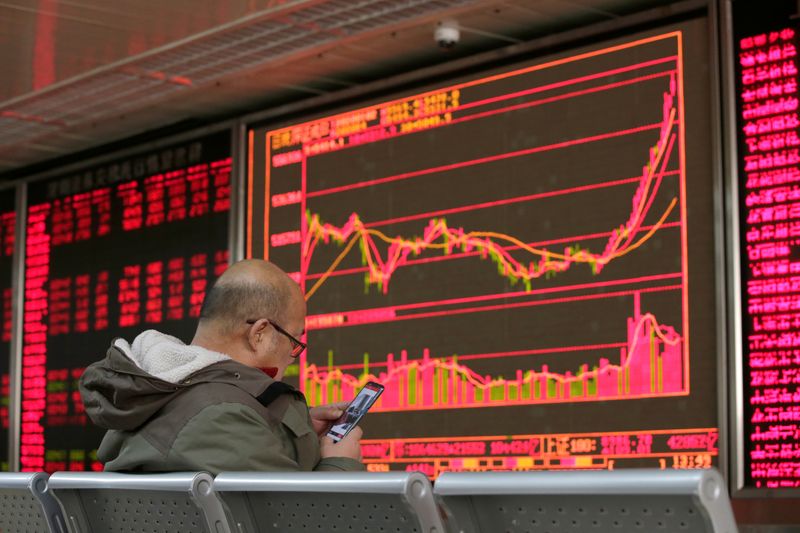This post was originally published on this site

Investing.com – Asia Pacific stocks were mixed on Thursday morning as investors assessed comments from central bank chiefs on tackling red hot inflation pressure.
Japan’s Nikkei 225 fell 0.94% by 10:32 PM ET (2:32 AM GMT).
South Korea’s KOSPI fell 0.70%.
In Australia, the ASX 200 dived 0.78%.
Hong Kong’s Hang Seng was up 0.22%.
China’s Shanghai Composite was up 0.75% while the Shenzhen Component was up 0.81%.
Oil hovered below $110 a barrel after a report indicated U.S. inventories fell on an unseasonal fuel demand slowdown.
U.S. Federal Reserve Chair Jerome Powell and his European and U.K. counterparts warned that inflation could be long-lasting during the European Central Bank (ECB)’s annual forum in Portugal.
Moreover, Fed Bank of Cleveland President Loretta Mester said officials should act forcefully to curb price pressures. Mester said that the Fed is “just at the beginning” of rising rates and she wants to see the benchmark lending rate reach 3% to 3.5% this year and “a little bit above 4% next year” even if that might drag the economy into a recession.
With concerns of high inflation and a recession caused by tightening monetary policies, global stocks are set to close out their worst quarter since the three months ended March 2020.
“I wouldn’t rush in to buy anything blindly right now; I still think we are going to have some pains over the next couple of weeks and months as inflation starts to stabilize,” Pacific Investment Management Co. multi-asset strategies portfolio manager Erin Browne told Bloomberg.
In Asia Pacific, China’s factory activity expanded for the first time in four months as COVID-19 curbs eased in major cities such as Shanghai. The official from the National Bureau of Statistics showed that the manufacturing purchasing managers’ index (PMI) rose to 50.2 in June from 49.6 in May, the first expansion since February.
Meanwhile, President Xi Jingping said zero COVID is still the most “economic and effective” policy for China. The country just slashed COVID quarantine time for inbound travelers to seven days from 14 days in centralized quarantine facilities.


